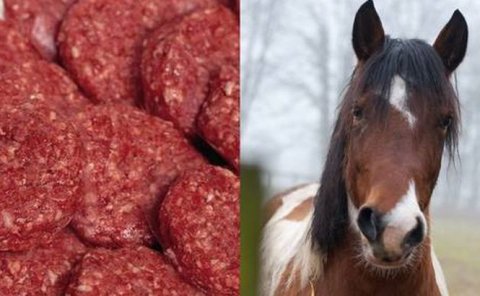
The EU has outlined an “intensive monitoring plan” to tackle the widening scandal over mislabeled horsemeat.
All members would be asked to carry-out random DNA tests on beef products for traces of horsemeat for the next three months, the health commissioner said.
He was speaking after a crisis meeting with ministers from the UK, France and other affected countries in Brussels.
“This is a Europe-wide issue that needs a Europe-wide solution,” Irish Farm Minister Simony Coveney said.
“This is about someone in the food supply chain selling horsemeat as beef and making money in a fraudulent way by doing that,” Simony Coveney added.
EU Health Commissioner Tonio Berg also said a separate programme of random tests should be carried out on horsemeat to check for the presence of the veterinary medicine phenylbutazone – known as bute.
The measures follow the discovery that meat sold in up to 16 European countries labeled as beef contained horsemeat.
The scandal has raised questions about the complexity of the food industry’s supply chains across the 27-member EU bloc, with a number of supermarket chains withdrawing frozen beef meals.
In the UK, the supermarket giant Tesco, frozen food firm Findus and budget chain Aldi received horsemeat-tainted mince from Comigel, based in north-eastern France.

Horsemeat has now been confirmed in some frozen lasagne on sale in France too.
In Germany, officials announced that a shipment of frozen lasagne suspected of containing horsemeat had arrived in the country. They were notified of the delivery by authorities in Luxembourg on Tuesday.
Comigel denied wrongdoing, saying it had ordered the meat from Spanghero, a firm in southern France, via a Comigel subsidiary in Luxembourg – Tavola.
The supply chain reportedly led back to traders in Cyprus and the Netherlands, then to abattoirs in Romania.
There are now calls for more specific labeling on processed meat products in the EU, to show country of origin, as in the case of fresh meat. But the cost of doing that may trigger opposition from food manufacturers.
Romania has denied claims that it was to blame for the mislabeling of horsemeat.
“There are plants and companies in Romania exporting horsemeat but everything was according to the standards, and the source and the kind of meat was very clearly put as being horsemeat,” said Romanian Prime Minister Victor Ponta.
[youtube QWgif71ybFA]